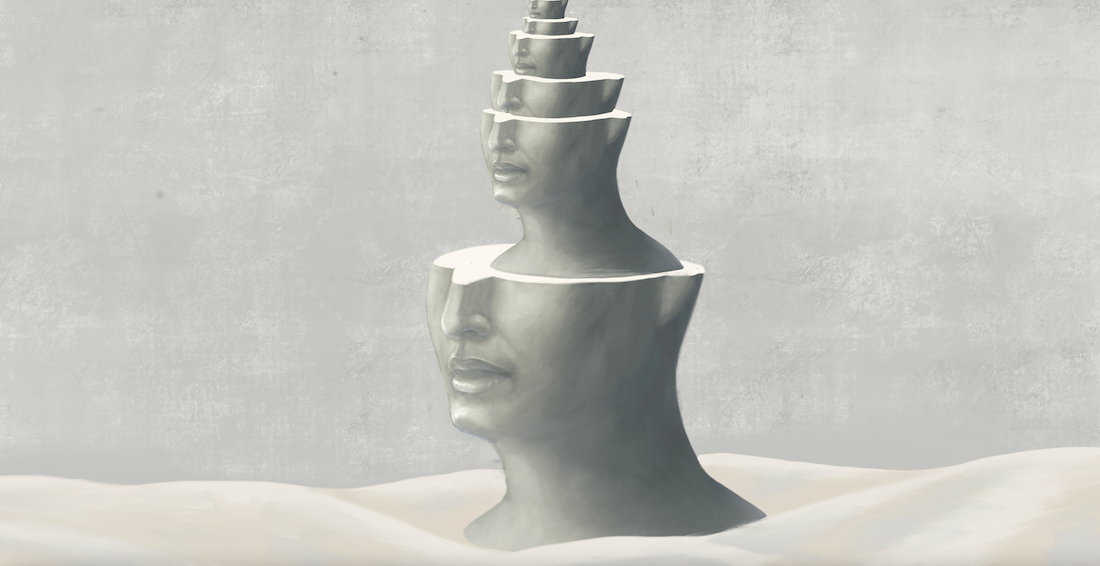What makes someone an “asshole”?

- To be an asshole is a moral deficit, but it’s unclear what exactly defines an asshole.
- Aside from being male, researchers found that assholes are thought of as self-centered, aggressive, and manipulative.
- Existentialist philosophy says that we are not simply the product of our past. We each have the power to stop being an asshole.
What makes a person an asshole? Believe it or not, researchers have attempted to answer that very question.
When we call someone an asshole, it’s philosophically different from calling them bad or immoral. A bad person is someone who does bad things. But when we say, “You’re an asshole,” it’s reserved only for claims of a more visceral kind. Assholery is a character flaw, and it concerns the entire nature of a person. We don’t tend to say, “That was an asshole action.” Instead, we say something like, “Don’t be an asshole.” Thus, the term is not simply a moral judgment about certain behaviors but is more like a description of a character trait.
What makes the term particularly difficult to define is the immense diversity of individuals who could reasonably carry that label. Assholes can be cowards or reckless. They can be stingy or condescending. They can be bitter or inappropriately cheerful. There are many flavors of asshole, and it’s a difficult task to pin the term down, exactly. Indeed, one person’s asshole is another’s legend.
But that won’t stop us from trying.
Asshole psychology
Who’s the biggest asshole in your life? One good way to answer the question, “What makes an asshole?” is to conjure up a familiar roster of assholes and to find the commonalties among them. When you think of the assholes you know, what binds them all together? Of course, this looks perilously like arguing from personal anecdote. Your assholes are not my assholes.
So, a team of researchers from the University of Georgia tried a more systematic approach. They asked 1,106 people who they considered assholes, and they categorized all the trends that emerged. Their findings were reported in the journal Collabra: Psychology.
First, asshole is clearly a gendered word. Roughly 80% were male, which makes it the counterpart to the female-focused “bitch.” Second, the top three markers of assholery were self-centeredness, aggression, and manipulativeness. Third, as the authors write, “In general, violation of social norms and mores… appear to be central correlates of nominated ‘asshole” behaviors.'” In other words, an asshole is simply someone who doesn’t behave as is expected of polite company.
One particular finding stood out: The largest “asshole” characteristic was actually “uncategorizable” because the descriptions were so personalized and specific. Assholes are, in many ways, the antithesis of everything we value. They are the Mr. Hyde to our Dr. Jekyll, the nemesis to our hero. It’s no wonder, then, that assholes are often so hard to define.
Selfish asshole
That said, it’s perhaps not so surprising that arrogance, self-centeredness, and entitlement feature prominently among assholes. There are few things so unlikable as the narcissist and the self-obsessed. We all know an egoist — someone who will do things only for themselves, motivated by self-love and private ambition.
There is evidence to show that being other-regarding, in which we demonstrate altruistic behaviors, leads to happy, satisfied, well-functioning relationships. The corollary of this is that those who are selfish or self-absorbed will have fewer of these relationships. This then leads to the familiar, “I broke up with my boyfriend because he’s an asshole.”
One study shows that “humblebragging” — the arrogance associated with insincere, faux humility — is the most unlikable trait. While narcissists might come across as “as energetic, interesting, and entertaining” at first, people often end up hating them or possibly rejecting them outright. In short, assholes are funny for a bit, but no one wants to be around an asshole for long.
Give assholes a chance
None of us like assholes. We avoid them and mock them when they’re not about. But, assholes are people, too, and they deserve second chances. Banishing someone to the frigid, friendless land of assholery needn’t be forever. After all, what about forgiveness and the road to self-improvement?
In many ways, existentialism is the philosophy of reinvention. For existentialists, while we can never entirely disregard or escape the past, we also have the power by which to go beyond, or “transcend,” it. For Jean-Paul Sartre, human freedom lies at the axis of the past and the future. The past defines our facticity — that is, the unchangeable baggage with which we are all burdened. But, today and tomorrow offer the possibility to transcend it. We can reinvent, recreate, and reimagine ourselves however we want. Today, we’re an asshole; tomorrow we can be different.
A lot of people are justifiably labeled assholes. One day, you might be the asshole. To some people, you are one already. But, a human being is not simply the sum of his or her past. Ahead of you lies the possibility of an asshole-free world.
Jonny Thomson runs a popular Instagram account called Mini Philosophy (@philosophyminis). His first book is Mini Philosophy: A Small Book of Big Ideas.





